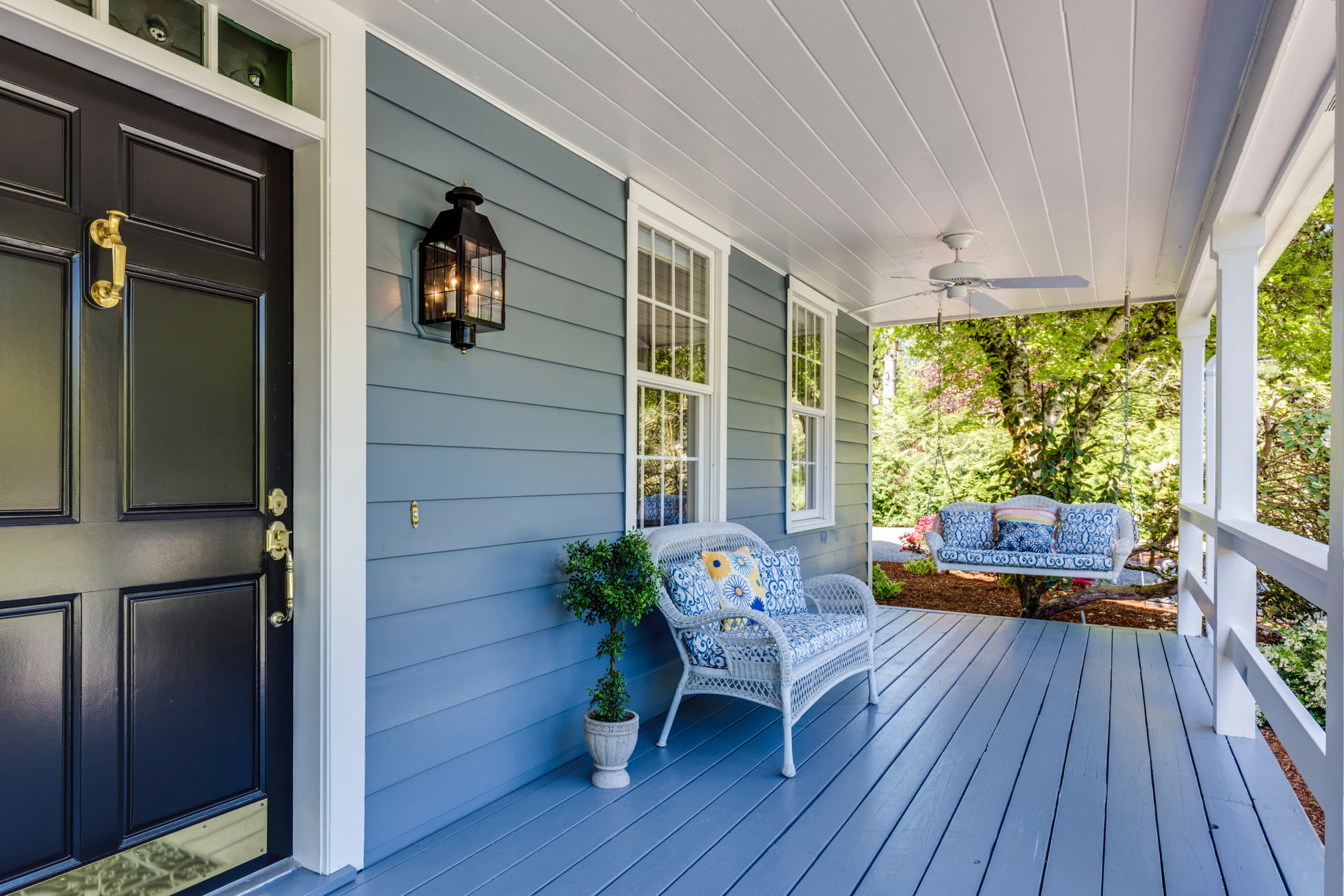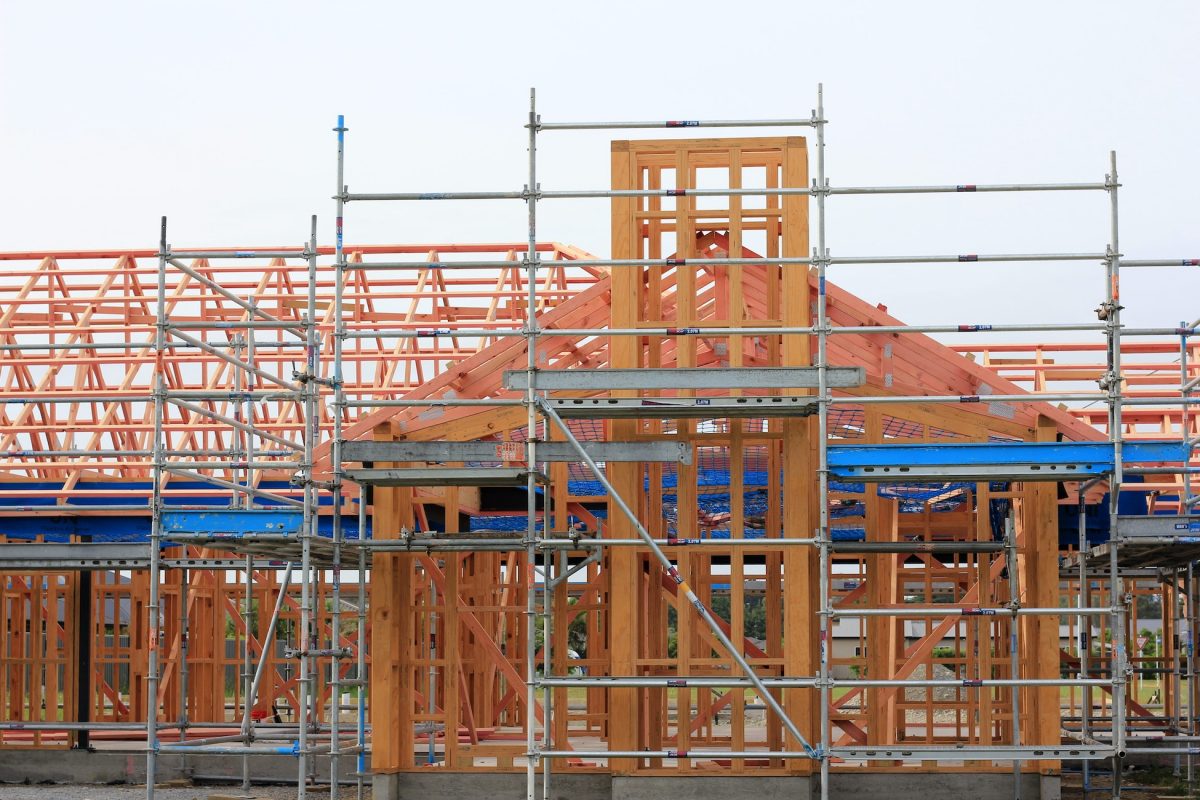Ever felt like trying to navigate the mortgage maze is as confusing as deciphering your favorite meme references in 2023? Welcome to the epic showdown between Jumbo Mortgage and Conventional Mortgage—a head-to-head battle that could determine whether your wallet does a happy dance or a not-so-chill facepalm. This guide is designed to break down the complexities of these two mortgage options, serving up a generous helping of humor, relatable insights, and solid financial advice for millennials and Gen Z who are ready to make savvy financial choices.
Jumbo Mortgage Vs Conventional Mortgage Table of Contents
Understanding the Basics: Jumbo Mortgage vs Conventional Mortgage
Diving Deeper: How Do They Differ?
The Advantages and Drawbacks: Weighing Your Options
Delving Into the Details: Jumbo Mortgage Specifics
Unpacking the Conventional Mortgage
Comparing the Costs: Interest Rates, Down Payments, and More
Qualification Criteria: What's Needed for Either Mortgage?
When to Choose a Jumbo Mortgage vs a Conventional Mortgage
Real-Life Scenarios: How Millennials and Gen Z Are Deciding
The Mortgage Application Process: A Step-by-Step Guide
Expert Tips for Navigating the Mortgage Maze
Impact on Your Financial Wellbeing: More Than Just a Loan
Resources and Community Support: Your Next Steps
Understanding the Basics: Jumbo Mortgage vs Conventional Mortgage
Picture this: you’ve been scrolling through dazzling home listings online, and you finally find a dream property that screams “you!” But then comes the million-dollar question (sometimes literally): How do you finance it? Enter the two mortgage titans—Jumbo and Conventional. At their core, both are home loans, but they differ in key areas like loan limits, financial requirements, rates, and risk appetite.
A conventional mortgage is your go-to standard home loan that meets the conforming guidelines set by Fannie Mae and Freddie Mac. These guidelines include loan limits that adjust based on location and the national housing market. They’re perfect if your desired home falls within those limits and you have a rock-solid credit history.
On the flip side, a jumbo mortgage is designed for those high-ticket properties that exceed the conforming loan limit. Think of it like the deluxe, ultra-premium version of a conventional mortgage—ideal for high-net-worth buyers or anyone aiming at properties with pricetags that make conventional loans break a sweat.
In essence, if the home you want costs more than what conventional guidelines allow, a jumbo mortgage enters the scene with its unique set of rules. And while both loans serve the same purpose—helping you achieve that key-in-hand moment—each has its own quirks, benefits, and challenges.
Diving Deeper: How Do They Differ?
Let’s break it down:
Loan Limits and Property Prices
The primary difference is the loan amount. Conventional mortgages are limited by conforming loan limits, which vary by location and sometimes by year. Jumbo loans, however, are not bound by these limits. If your dream home is priced above these thresholds, you’ll likely need to go jumbo.
Qualification Criteria
Conventional loans typically require a solid credit score and a steady income, but the bar might be slightly lower compared to jumbo loans. Jumbo mortgages demand top-tier credit, a higher down payment, and a robust financial resume to prove you can handle the added risk. Basically, think of jumbo mortgages as the varsity team, while conventional loans are more like your community college squad that still wins the championship.
Interest Rates and Terms
Interest rates can differ between jumbo and conventional loans. Conventional mortgages often have lower rates because they're seen as less risky by lenders due to their standardization and government backing (via Fannie Mae and Freddie Mac). Jumbo loans, being riskier and less common, might come with slightly higher rates and a narrower range of term options.
Down Payment Requirements
While conventional loans can sometimes be snagged down with as little as 3-5% down (especially when coupled with mortgage insurance), jumbo mortgages often require a heftier down payment—typically ranging from 20% to 30%. It’s all about reassurance: lenders want to make sure you’re in it for the long haul when the numbers are this big.
The Advantages and Drawbacks: Weighing Your Options
When choosing between a jumbo mortgage and a conventional mortgage, it’s essential to consider how each fits into your financial picture. Let’s talk pros and cons—because every coin has two sides, and we’re here to flip the heck out of them.
Jumbo Mortgage Pros
- Access to High-Value Properties: Jumbo loans open doors to upscale real estate that conventional loans just can’t touch due to their lowered loan limits.
- Flexible Loan Terms: Some jumbo loans come with unique features such as adjustable-rate options or interest-only periods, which can give you flexible financial control in the short term.
- Prestige Factor: While not the primary reason to choose a jumbo mortgage, there’s a certain allure that comes with financing a luxury home.
Jumbo Mortgage Cons
- Higher Down Payments: You’ll need a bigger upfront investment, which can be a hurdle if cash flow is tight.
- Stricter Qualification: Expect rigorous scrutiny of your credit score, income, and overall financial health. If you’re still shedding student loans or juggling multiple gigs, you may find these requirements intimidating.
- Potentially Higher Interest Rates: Lenders compensate for the higher risk, so the rates might be a bit steeper than what conventional loans offer.
Conventional Mortgage Pros
- Lower Interest Rates: With government backing and standardized guidelines, conventional loans often come with more attractive interest rates.
- More Lenient Down Payment Options: Some conventional programs allow for lower down payments, making homeownership more accessible, especially for first-time buyers.
- Streamlined Process: The application process for a conventional loan can be simpler and faster due to widespread industry familiarity.
Conventional Mortgage Cons
- Loan Limit Restrictions: They simply won’t cover high-priced properties, limiting your options if you’re dreaming of a luxury home.
- Mortgage Insurance: If your down payment is less than 20%, you might have to pay for private mortgage insurance (PMI), which can add extra costs over time.
Ultimately, the choice depends on your financial standing, property goals, and how comfortable you are with the associated requirements and risks.
Delving Into the Details: Jumbo Mortgage Specifics
If you’re leaning toward a jumbo mortgage, here’s what you need to know about its inner workings:
Loan Amount Flexibility
Jumbo mortgages are designed to finance properties that exceed the conforming loan limits. This means you can secure funding for high-value homes without having to resort to multiple loans or complex financing schemes.
Creditworthiness and Financial History
With great power comes great responsibility—and, in this case, great scrutiny. Lenders will meticulously assess your credit history, income stability, and overall debt-to-income ratio. They’re looking for that reassuring “I’ve got this” financial stability.
Down Payment Demands
When it comes to a jumbo mortgage, saving for a down payment is not a casual affair. Instead of sliding in with a 3-5% down option, you’re more likely to be asked for a chunkier 20%-30% down payment. It’s like upgrading from instant noodles to a gourmet meal—you’ve got to invest a bit more upfront.
Interest Rate Considerations
While jumbo rates can be competitive, they sometimes include a premium. This is because the risk is higher for lenders who are financing more extravagant properties. However, if you boast an impeccable credit score and financial track record, you might just snag a rate that’s on par with conventional loan rates.
Documentation and Underwriting Rigors
The jumbo mortgage process demands comprehensive documentation. Be ready to showcase tax returns, bank statements, investment records, and more. It might feel like undergoing an FBI-level investigation into your finances, but don’t worry—it’s all in the name of responsible lending.
Unpacking the Conventional Mortgage
Conventional mortgages are the bread and butter of the housing market. They’re among the most common and accessible types of home loans, and they come with a set of features that make them appealing for most homebuyers.
Conforming Loan Guidelines
These loans adhere to the guidelines set forth by Fannie Mae and Freddie Mac. That means there’s a cap on the loan amount, which varies by region. If your potential haven is priced reasonably, a conventional mortgage might be the ideal route.
More Accessible Qualification Standards
While a good credit score is still important, the qualifications for a conventional loan are often more forgiving than those for a jumbo mortgage. If you’re working on building up your financial profile—maybe you’re juggling freelance gigs or starting your first job—this option might just be the perfect fit.
Lower Down Payment Options and PMI
One of the major perks of a conventional loan is the potential for a lower down payment. Programs that allow down payments as low as 3% can make homeownership feel less like a distant dream and more like an achievable goal. Just be aware that if your down payment is below the 20% threshold, you’ll likely need to pay for private mortgage insurance (PMI), which adds an extra monthly expense.
Simplified Approval and Closing Processes
Because conventional mortgages are so common, the approval process is relatively standardized and streamlined. This means fewer surprises and smoother sailing from application to closing.
Comparing the Costs: Interest Rates, Down Payments, and More
When it comes to home loans, the devil is in the details. Let’s break down how costs vary between jumbo and conventional mortgages:
Interest Rates
Generally, interest rates on conventional loans hover on the lower end because they are less risky for lenders. Jumbo loans may carry a slightly higher rate as an insurance policy against the greater risk, but robust financial profiles can help mitigate this difference.
Down Payment Requirements
Down payments are where the two mortgage types really part ways. Conventional mortgages often offer the possibility of lower down payments, making them attractive if you’re working with a less robust cash reserve. In contrast, jumbo mortgages generally require a more significant down payment—think of it as investing more upfront to secure a luxury asset.
Closing Costs and Fees
Both mortgage types come with closing costs, appraisal fees, and other charges. However, because jumbo loans involve larger sums, those closing costs may be proportionally higher. It’s essential to budget for these expenses to avoid any post-closing surprises.
Private Mortgage Insurance (PMI)
PMI is typically a feature of conventional loans when your down payment is under 20%. While it can help you get into the home sooner, it does add an extra cost to your monthly payments. Jumbo loans usually sidestep PMI due to the higher down payment requirements.
Understanding these cost differences plays a critical role in determining the long-term financial impact of your home purchase. Whether you choose a jumbo or conventional mortgage, carefully assess the overall expense to make a sound financial decision.
Qualification Criteria: What's Needed for Either Mortgage?
Applying for a mortgage is a lot like preparing for a big exam—you need to come prepared with all the right documentation and a solid record of past performance (in this case, your financial history). Here’s a snapshot of what lenders will be looking for:
Credit Score and History
Your credit score is the crown jewel of your financial profile. For conventional mortgages, a score in the mid-600s or higher is typically required, although higher scores can help you secure a better rate. Jumbo mortgages, however, often demand a score in the 700s due to the higher risks involved.
Debt-to-Income Ratio
Lenders will evaluate your debt-to-income (DTI) ratio to determine your ability to manage monthly payments. A lower DTI means you’re juggling your finances like a pro, which can be a major plus on your application.
Down Payment Reserves
Proof that you have sufficient savings not just for the down payment, but also for reserves in case of emergencies, is crucial. This is particularly important for jumbo mortgages, where a larger down payment is the norm.
Employment and Income Stability
Lenders are all about predictability. A steady job with a traceable record of income (usually a minimum of two years) can significantly smooth the underwriting process.
Armed with this checklist, you can go into your mortgage application with confidence, knowing exactly what financial signals you need to put across to secure that dream home loan.
When to Choose a Jumbo Mortgage vs a Conventional Mortgage
The choice between a jumbo and conventional mortgage is rarely black and white—it’s more like choosing between a high-performance sports car and a reliable sedan. Each has its own benefits, and the best option depends largely on your specific situation.
If You’re Eyeing a Luxury Home
Jumbo mortgages are typically the go-to if your ambition is to purchase a high-priced property that sits above the conventional loan limit. If you’ve saved enough to handle a bulky 20%-30% down payment and your credit score has the sparkle of a five-star rating, a jumbo loan might just be your golden ticket.
If You’re a First-Time Buyer or Budget-Conscious
Conventional mortgages are friendly for those who are stepping into homeownership for the first time. With options that allow for lower down payments and a less intimidating qualification process, they’re perfect for the budget-savvy buyer trying to build equity without overwhelming financial stress.
Considering Your Long-Term Financial Goals
Evaluate not only your current financial status but also your future plans. Are you aiming for rapid home appreciation and potential investment returns, or are you seeking a stable, manageable monthly payment? A conventional mortgage might keep your monthly costs lower, while a jumbo mortgage could work better if you’re focused on high-value property investments.
Risk Tolerance and Financial Stability
With a jumbo mortgage, you’re entering a terrain where the stakes—and therefore the risk—are higher. Millennials and Gen Z buyers who have built a durable financial foundation and are ready to embrace a bit more risk might favor a jumbo loan if it suits their property goals. Conversely, if you’d rather take a more conservative approach as you navigate early financial independence, the conventional route offers a smoother ride.
Real-Life Scenarios: How Millennials and Gen Z Are Deciding
Let’s step into some relatable scenarios:
The Urban Loft Dreamer
Meet Taylor, a young professional who’s been thriving in a bustling metropolitan area. Taylor’s found an ultra-modern loft that, while not sky-high in price, offers amenities and a location that command a premium. With a conventional mortgage, Taylor can snag the place with a manageable down payment and favorable interest rates, making homeownership a gateway to living that enviable city life.
The Suburban Upgrade Seeker
Then there’s Jordan, who’s upgrading from a cramped apartment to a spacious suburban home complete with a large yard and room to host epic summer bbq’s. The property, however, is priced above normal limits. With a fantastic credit score and substantial savings, Jordan opts for a jumbo mortgage. Although the down payment is steeper, the benefits of financing a home that truly fits Jordan’s growing needs outweigh the upfront cost.
The Future Investor
Finally, consider Alex, an aspiring entrepreneur who views homeownership as a stepping stone to future financial independence. Alex is torn between a conventional mortgage and a jumbo loan for a multi-unit property in an up-and-coming neighborhood. After weighing the financial risks and rewards, Alex decides that a jumbo mortgage provides the flexibility and investment potential to diversify income streams. This choice isn’t just about living—it’s about building a future.
These stories show that while numbers and guidelines matter, personal goals, lifestyle needs, and risk tolerance ultimately drive the decision between a jumbo and conventional mortgage.
The Mortgage Application Process: A Step-by-Step Guide
Applying for a mortgage might feel as challenging as mastering your favorite TikTok dance routine—but with the right steps, you can nail it. Here’s a roadmap to help you tackle the process from preapproval to closing:
Step 1: Prequalification and Preapproval
Start by gathering your financial documents—bank statements, tax returns, pay stubs, and that all-important credit report. Lenders will run the numbers, giving you a prequalification that sets realistic expectations for your budget. Once you have that, a preapproval letter serves as your financial passport when making an offer on a home.
Step 2: Document Preparation
Whether you’re aiming for a conventional loan’s simpler documentation process or the more detailed dossier needed for a jumbo mortgage, get organized early. The more prepared you are, the smoother the review process will go—think of it as curating the ultimate highlight reel of your financial achievements.
Step 3: Loan Application and Underwriting
When you apply for the loan, a thorough underwriting process begins. This is where every detail is scrutinized—your credit, your income, even your employment history gets a magnifying glass treatment. Be patient; this stage is all about ensuring that lending to you is a safe bet.
Step 4: Approval, Closing, and Beyond
Once approved, the final steps include reviewing the closing disclosure, signing a mountain of paperwork, and finally receiving your keys. Don’t be overwhelmed by the process—each step brings you closer to transforming your dreams into real estate reality.
With a clear understanding of the steps ahead, you’ll be ready to engage with lenders confidently and secure the mortgage that best fits your financial narrative.
Expert Tips for Navigating the Mortgage Maze
Let’s talk shop: if you’re serious about making the best mortgage choice, here are some pro tips that can save you time, money, and stress.
- Boost Your Credit Score: Before hitting the market, check your credit report for inaccuracies and focus on reducing outstanding debt. A better credit score can translate to lower interest rates regardless of which type of mortgage you choose.
- Shop Around: Don’t settle for the first offer. Compare rates, terms, and fees from multiple lenders. Like hunting for the best meme, the best deal might be hiding in plain sight.
- Budget Beyond the Home: Remember to include closing costs, maintenance, insurance, and other fees in your overall budget. Homeownership is a marathon, not a sprint.
- Stay Informed: Keep up with changing market conditions, interest rate trends, and new loan options. Follow reputable real estate blogs, podcasts, and financial influencers who speak your language.
- Consult a Mortgage Professional: Sometimes a seasoned expert can help decode the jargon, explain the nuances, and tailor advice to your unique financial situation.
These tips are your cheat codes for navigating the sometimes overwhelming world of home financing. Keep them handy as you transition from browsing listings online to signing on that dotted line.
Impact on Your Financial Wellbeing: More Than Just a Loan
A mortgage isn’t just a loan—it’s a major financial decision that can affect your overall wellbeing for years to come. It touches on your monthly cash flow, investment potential, and even your long-term stability. Here’s how:
Building Equity
Whether you opt for a jumbo or conventional mortgage, each monthly payment chips away at your loan balance and builds equity. Unlike throwing money away on rent, you’re investing in an asset that can grow in value over time.
Flexibility for the Future
Your mortgage can be a tool for financial flexibility. Lower interest rates on a conventional loan might free up extra cash for investments, travel, or starting a small venture, while the prestige of a jumbo mortgage might come with perks that align with your goals.
Stress and Peace of Mind
It’s no secret that financial stress can impact your overall wellbeing. Choosing the right mortgage means aligning your monthly commitments with your income and lifestyle, leading to less stress and more opportunities for a balanced life.
As you embark on this journey, consider your mortgage not as a burden, but as a stepping stone toward greater financial security and the freedom to pursue your dreams.
Resources and Community Support: Your Next Steps
Knowledge is power, and there’s no shortage of resources available to help you conquer the home financing arena. Whether you’re leaning toward the sophistication of a jumbo mortgage or the accessibility of a conventional one, these resources can provide guidance, support, and a sense of community:
- Online Mortgage Calculators: Tools that help you estimate monthly payments, interest costs, and overall affordability.
- Financial Blogs and Podcasts: Look for content produced by trusted financial advisors who break down complex topics into digestible, relatable advice.
- Local Homebuyer Workshops: Many community centers and banks offer free seminars that walk you through the mortgage process, from preapproval to closing.
- Credit Counseling Services: If you need help improving your credit score or budgeting for a down payment, non-profit organizations offer free or low-cost counseling.
- Mortgage Broker Networks: Connect with professionals who have access to multiple lenders, giving you the best chance of securing favorable terms on your loan.
Engaging with these resources, joining online forums, and participating in community workshops not only helps you make informed decisions but also connects you with like-minded individuals who are navigating the same financial journey.
FAQ: Your Mortgage Questions Answered
We know you’ve got questions about jumbo versus conventional mortgages, so we’ve compiled some of the most frequently asked ones right here:
1. What is the primary difference between a jumbo and a conventional mortgage?
The primary difference lies in the loan amount. Conventional mortgages adhere to loan limits set by Fannie Mae and Freddie Mac, while jumbo mortgages finance properties that exceed those limits, coming with higher down payment and stricter qualification requirements.
2. Can my credit score affect my mortgage options?
Absolutely. A high credit score can help secure lower interest rates and better terms on both jumbo and conventional mortgages. However, jumbo loans usually require a higher credit score due to the increased risk.
3. Are jumbo mortgages riskier than conventional mortgages?
From a lender’s perspective, jumbo mortgages carry more risk because of their larger amounts and less standardized parameters. For the borrower, however, a jumbo loan is just as safe if you have a strong financial profile.
4. What is the typical down payment required for a jumbo mortgage?
Jumbo mortgages generally require a down payment between 20% and 30%, whereas conventional loans may allow for down payments as low as 3% to 5%, especially for first-time homebuyers.
5. Do conventional mortgages include private mortgage insurance (PMI)?
If your down payment is less than 20%, many conventional mortgages require PMI, which is an extra cost added to your monthly payments. Jumbo loans, given their higher down payment requirements, rarely need PMI.
6. Which mortgage type is more suitable for first-time homebuyers?
Conventional mortgages are often more accessible for first-time homebuyers due to their lower down payment options and simpler qualification process.
7. How do interest rates generally compare between jumbo and conventional mortgages?
Conventional mortgages typically offer lower interest rates due to their conforming guidelines and lower risk for lenders. Jumbo mortgages may have slightly higher rates to balance the increased risk.
8. Can I refinance my mortgage later on?
Yes, both jumbo and conventional mortgages can be refinanced, although the process and available options might vary based on market conditions and your financial situation.
9. What should I do if I’m unsure which mortgage type is right for me?
Consult with a mortgage professional or financial advisor. They can evaluate your unique financial profile and help steer you toward the option that best aligns with your long-term goals.
10. Are there any special programs or incentives for millennials and Gen Z homebuyers?
Many lenders and state programs offer incentives, such as down payment assistance and favorable loan terms, specifically tailored to first-time buyers and younger demographics. Research local programs or talk to a mortgage broker for details.
Your Path to Mortgage Mastery
Whether you’re dreaming of a chic downtown condo that screams modern minimalism or a sprawling suburban estate perfect for hosting epic backyard parties, your mortgage decision is a key step in crafting the lifestyle you’ve envisioned. Remember, the choice between a jumbo mortgage and a conventional mortgage is about matching the financing to your unique situation, backed by a clear understanding of the risks and benefits.
The journey might seem daunting—like trying to decode a viral internet trend—but armed with the right information and a touch of humor, you can confidently take on the mortgage world. Embrace the process, stay in tune with your financial goals, and don’t hesitate to lean on experts and community resources along the way.
At the end of the day, homeownership isn’t just about securing a loan; it’s about investing in your future, building equity, and creating a space that truly feels like yours. So, take a deep breath, dive into the numbers, and let your next financial chapter be as bold and inspiring as your favorite meme.
Your journey to mortgage mastery begins now. Whether you choose the sleek efficiency of a conventional mortgage or the high-powered potential of a jumbo mortgage, know that this decision is a stepping stone toward long-term financial wellbeing and the lifestyle you deserve.













